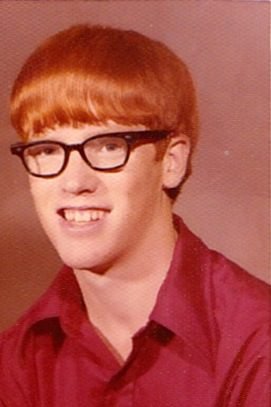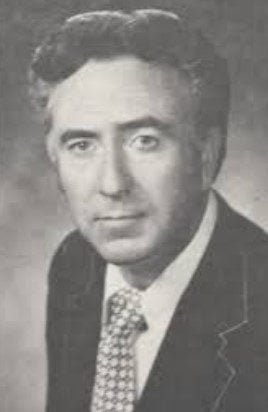
Over the past fifteen years, I have received countless emails from Evangelicals wanting me to share with them my salvation testimony. Some of these interlocutors sincerely want to understand my past and how it is I became an atheist. Others are looking for discrepancies or errors — from their theological perspective, anyway — in my testimony. Finding these glosses allows them to dismiss my story out of hand, saying, Bruce, you never were a Christian. I used to take great offense when Evangelical zealots dismissed my past life of love, faith, and devotion to Jesus, but I no longer do so. I now realize that many Evangelicals must neuter my story lest it force them to consider and answer uncomfortable questions about their own lives and theology. It’s far easier to just dismiss me out of hand, saying that I never was a Christian; that I was deceived, a false prophet, a wolf in sheep’s clothing, or any of the other epithets Evangelicals throw my way. I have never said to a Christian, I don’t believe your testimony of saving faith. I accept what they tell me at face value. You say you are a Christian; that Jesus is your Lord and Savior? Who am I to doubt your story? Unfortunately, many Evangelicals don’t seem similarly inclined when it comes to my story or those of other Evangelicals-turned-atheists.
What follows my is Baptist salvation testimony. Instead of writing out my testimony every time someone asks me for it, I will now send them to this post.
I was raised in the Evangelical church. My parents were saved in the early 1960s at Scott Memorial Baptist Church (now Shadow Mountain Community Church) in El Cajon, California, pastored at the time by Tim LaHaye. From that time forward, the Gerencser family attended Evangelical churches — mostly Bible, Southern Baptist, or Independent Fundamentalist Baptist (IFB) congregations.

In the spring of 1972, my parents divorced after 15 years of marriage. Both of my parents remarried several months later. While my parents and their new spouses, along with my brother and sister, immediately stopped attending church, I continued to attend Trinity Baptist Church in Findlay, Ohio. In the fall of 1972, a high-powered IFB evangelist named Al Lacy came to Trinity to hold a week-long revival meeting. One night, as I sat in the meeting with my friends, I felt deep conviction over my sins while the evangelist preached. I tried to push aside the Holy Spirit’s work in my heart, but when the evangelist gave the invitation, I knew that I needed to go forward. I knew that I was a wretched sinner in need of salvation. (Romans 3) I knew that I was headed for Hell and that Jesus, the resurrected son of God, was the only person who could save me from my sin. I knelt at the altar and asked Jesus to forgive me of my sin and save me. I put my faith and trust in Jesus; that he alone was my Lord and Savior. (That if thou shalt confess with thy mouth the Lord Jesus, and shalt believe in thine heart that God hath raised him from the dead, thou shalt be saved. For with the heart man believeth unto righteousness; and with the mouth confession is made unto salvation. For the scripture saith, Whosoever believeth on him shall not be ashamed. Romans 10:9-11)
I got up from the altar a changed person. I had no doubt that I was a new creation, old things had passed away, and all things had become new. (Therefore if any man be in Christ, he is a new creature: old things are passed away; behold, all things are become new. (2 Corinthians 5:17)
The next Sunday, I was baptized, and several weeks later I stood before the church and declared that I believed God was calling me to preach. For the next thirty-five years, I lived a life committed to following after Jesus and the teachings of the Bible. While I failed many times as a Christian, there was never a time when I doubted that Jesus was my Lord and Savior. I loved him with all my heart, soul, and mind, and my heart burned with the desire to preach and teach the Word of God, evangelize the lost, and help Christians mature in their faith. No one doubted that I was a Christian. Not my Christian family; not my Christian friends; not my colleagues in the ministry; not the people who lovingly called me preacher. I was, in every way, a devoted Christian husband, father, and pastor. As all Christians do, I sinned in thought, word, and deed, but when I did, I confessed my sin to the Lord and asked for his forgiveness. (If we confess our sins, he is faithful and just to forgive us our sins, and to cleanse us from all unrighteousness. (1 John 1:9) And then I got up from my knees and strived to make my calling and election sure. (Wherefore the rather, brethren, give diligence to make your calling and election sure: for if ye do these things, ye shall never fall. (2 Peter 1:10)
This is my testimony.
Bruce Gerencser, 66, lives in rural Northwest Ohio with his wife of 45 years. He and his wife have six grown children and thirteen grandchildren. Bruce pastored Evangelical churches for twenty-five years in Ohio, Texas, and Michigan. Bruce left the ministry in 2005, and in 2008 he left Christianity. Bruce is now a humanist and an atheist.
Connect with me on social media:
Your comments are welcome and appreciated. All first-time comments are moderated. Please read the commenting rules before commenting.
You can email Bruce via the Contact Form.
About Bruce Gerencser

